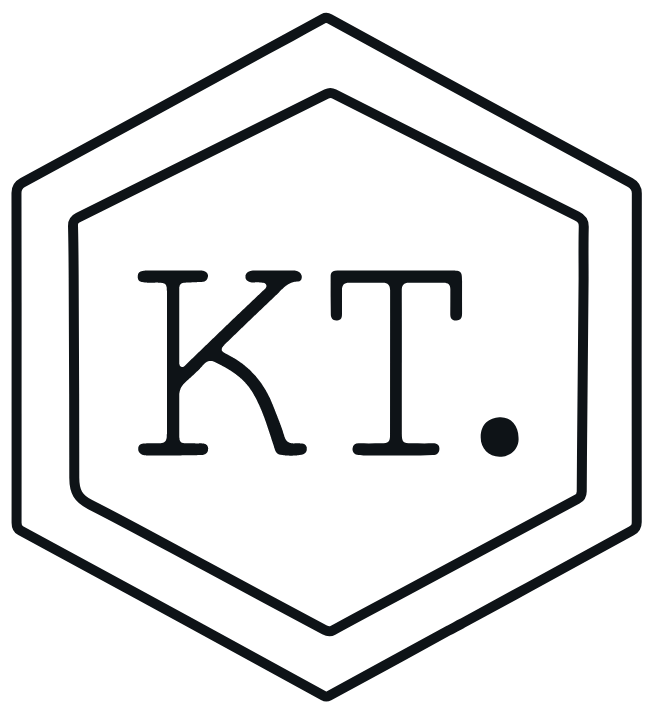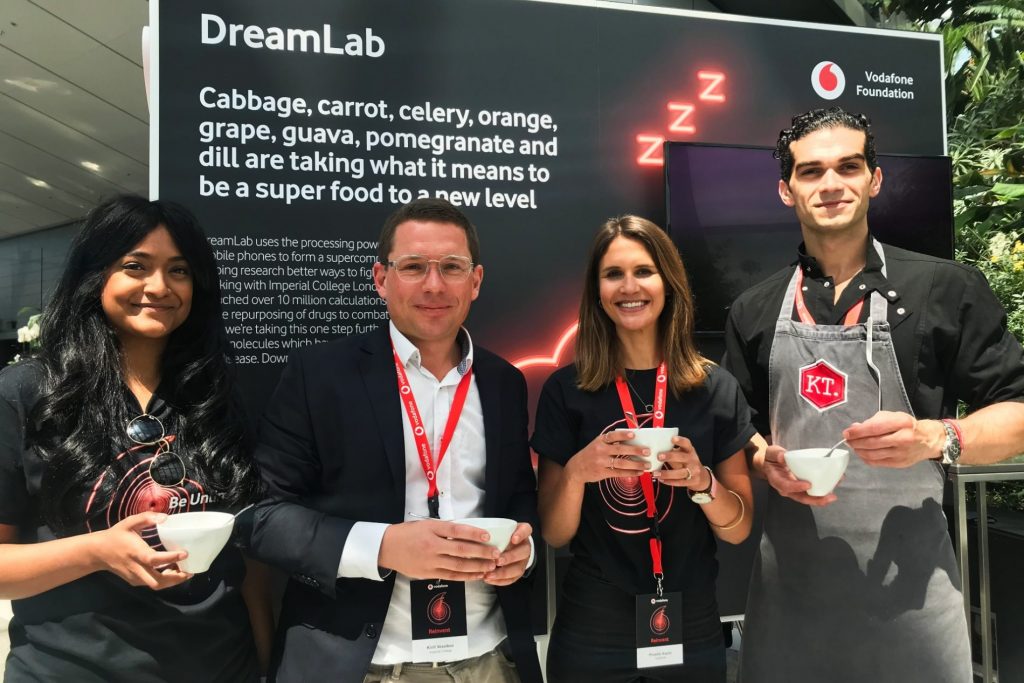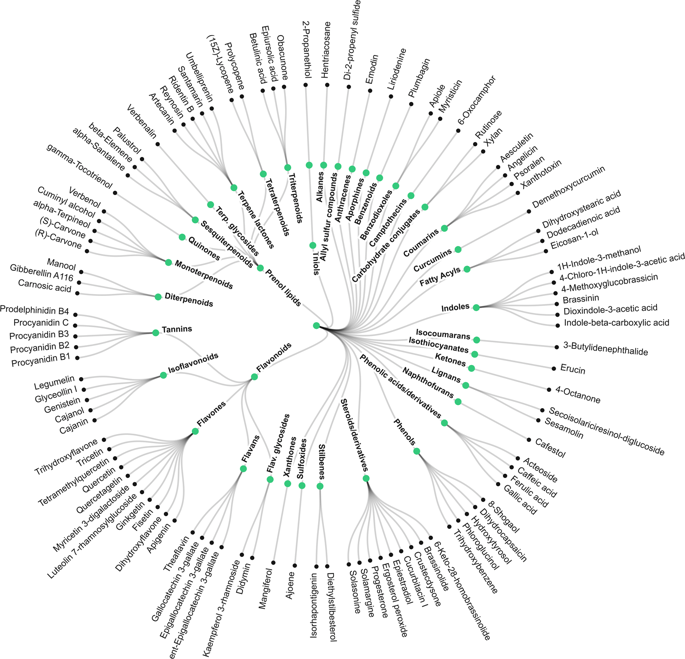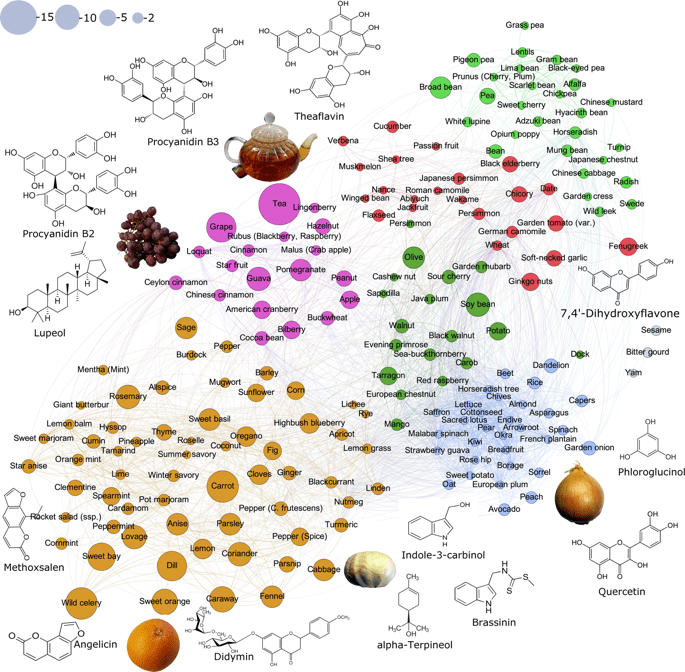HYPERFOODS
AI IS GOING TO HELP US MAKE SMARTER FOOD CHOICES
HOW AN EXPERIMENTAL CHEF AND A COMPUTER SCIENTIST ARE WORKING TO HELP PEOPLE MAKE MORE NUTRITIOUS AND SUSTAINABLE FOOD CHOICES USING ARTIFICIAL INTELLIGENCE
Public Health England recently published a report stating that ‘obesity is one of the biggest health crises the country faces’, costing the NHS an estimated £6 billion pounds a year. The report also stated that obesity and poor metabolic health ‘puts people at greater risk of serious illness or death from COVID-19’.
The idea that the foods we consume have an impact on our health and wellbeing is indisputable and has been gaining traction over the last few decades, yet the issue lies within the fact that most modern medicine fails to consider nutrition.
It is a lack of research into this field which inspired Dr Kirill Veselkov (Imperial College London) and chef Jozef Youssef (Kitchen Theory) to begin the HYPERFOODS project. Since 2018 the duo has worked on research that can be developed into delicious recipes which potentially optimise people’s diets, improve their wellbeing and reduce chronic diseases.
In a nutshell; the research uses artificial intelligence, machine learning and natural language processing to identify disease beating molecules in foods. The research relies on the supercomputing power of the Vodafone Foundation DreamLab platform, which Dr Veselkov has been working on since 2017 at Imperial College London.
HYPERFOODS boasts a host of academic collaborators from computer sciences, biophysics and analytical chemists as well as experts from the fields of mass spectrometry, practical surgery, epidemiology and gastronomy. In July 2019 the team published their first paper ‘HyperFoods: Machine intelligent mapping of cancer-beating molecules in foods’ in Nature Journal’s Scientific Reports and now they are releasing their first cookbook.
The book’s authors are confident that this research will play a role in helping people make smarter, more nutritious and sustainable food choices in the future. They are also quick to point out that the relationship between food and disease remains an emerging field of study requiring further clinical research, and that this first cookbook is intended to raise awareness of food’s medical potential rather than to be used as a dietary guide.
THE HYPERFOODS COOKBOOK
Read and download the HYPERFOODS cookbook for free here:
ABOUT THE MAIN TEAM
Dr Kirill Veselkov is an assistant Professor in Computational Medicine at Imperial College London. Dr Veselkov has received a World Economic Forum (WEF) Young Scientist Award, and currently serves as an active member of the WEF Global Agenda Council on the Future of Computing. Chef Jozef Youssef is the founder and creative director of Kitchen Theory, a London based design studio with an award-winning Chef’s Table. Youssef works in collaboration with leading scientists & psychologists to research a broad range of food topics from multisensory flavour perception to the role of food in healthcare. Professor Michael Bronstein is computer scientist, entrepreneur, and investor. He is a professor at Imperial College London and University of Lugano, as well as being the Head of Graph Learning Research at Twitter. Others involved include academic collaborators from computer sciences, biophysics and analytical chemists as well as experts from the fields of mass spectrometry, practical surgery, epidemiology and gastronomy. The research paper ‘HyperFoods: Machine intelligent mapping of cancer-beating molecules in foods is available to view at www.nature.com/articles/s41598-019-45349-y. The paper was based on Imperial’s DRUGS project which, powered by the Vodafone Foundation’s DreamLab app, pairs bespoke Artificial Intelligence technologies, mobile supercomputing and big data to speed up scientific research and analyse billions of combinations of existing drugs and food based molecules to identify previously unknown disease-beating properties. The below is an excerpt from the paper published by Dr Veselkov, professor Michael Bronstein and Jozef Yousef et al: HyperFoods: Machine intelligent mapping of cancer-beating molecules in foods – Scientific Reports (Nature), December 2019:
QUOTES
“Society is experiencing a continuous growth of chronic diseases such as cancer, metabolic syndrome, neurological diseases and heart disorders. A large part of the problem is our poor dietary choices. According to evidence-based studies, unhealthy diets are responsible for 1 out of 5 deaths globally”
Dr Kirill Veselkov (Imperial College London)
– “While we are still far from being able to offer prescription or personalised diets, this seminal research topic and subsequent recipes are an important step towards understanding how to use food more intelligently to improve healthcare.”
Chef Jozef Youssef (Kitchen Theory, London)
– “Hyperfoods is the first attempt to apply network-based AI to the modelling of health effects of food and computational design of nutrition that has the potential to prevent or beat diseases. By modelling the “network effects” of the interactions between food-based molecules and biomolecules in our body, we can, for example, identify which foods contain ingredients that might work similarly to oncological drugs.”
Dr Michael Bronstein (Imperial College London/Head of Graph Learning Research, Twitter)
– “Technologies like AI have the enormous potential to create a smarter healthcare system and ultimately the personalisation of medicine which will improve the experience and outcomes for patients. We are hugely proud that DreamLab has played such an important role in Imperial College’s research project and in the development of this collection of recipes. And the research is ongoing – so please download the app and use it every night.”
Helen Lamprell, General Counsel & External Affairs Director, Vodafone UK
Client:
QodeInteractiveDate:
February 15, 2023





